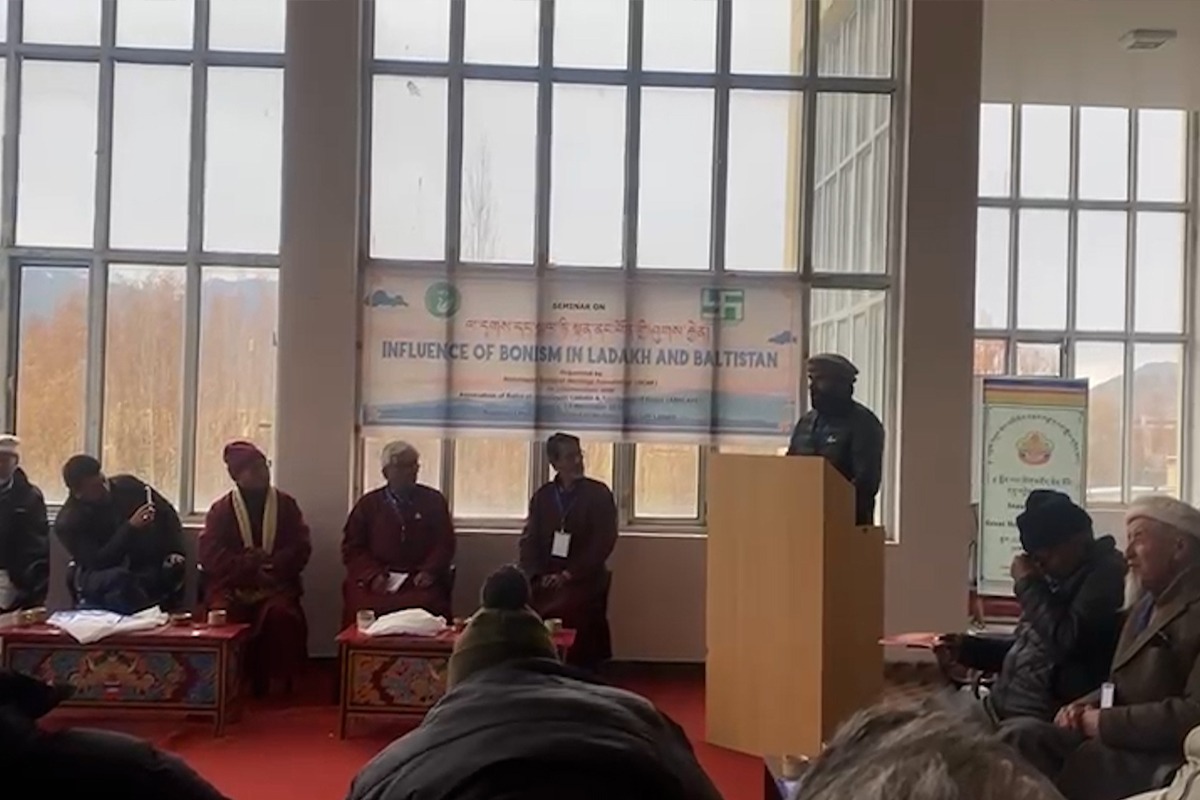Several noted personalities from Buddist and Muslim communities including two Padma Shri awardees discussed the influence of Bonism in Ladakh and Baltistan, a territory occupied by Pakistan, in Leh on Sunday.
Bonism refers to Bon – a unique set of traditions, belief systems, literature, language, dress, and eating habits practised by both Buddhists and Baltis in Ladakh and Baltistan.
Bon, a local religion, is believed to have been born during the rule of the powerful Zhangzhung kingdom which finds frequent mention in texts. It was the official religion of the kingdom.
The seminar was organised by the Himalayan Cultural Heritage Foundation (HCHF) in collaboration with the Association for Baltis in Himalayan Ladakh and Territories of Indus (ABHLATI) at the Nagarjuna Hall of Central Institute of Buddhist Studies – a deemed to be university – in Leh.
During the seminar, speakers highlighted that many aspects of Bonism are still practised by Baltis in Baltistan and Ladakh.
Padma Shri awardees Akhone Asgar Ali Basharat, a noted educationist, and Morup Namgyal, who is hailed for his contributions to reviving Ladakhi and Tibetan folk music tradition, were among the speakers.
Braving cold weather and snow, as many as 100 people from across the communities including Buddhist monks, Islamic preachers and community leaders were present at the event.
Speakers argued that the culture of Bonism has evolved and flourished over centuries due to the strategic location of the area where it was practised.
At different intervals of history, Baltis have encountered different sets of belief systems, and linguistic and cultural groups under different rulers which resulted in changes in their art, culture, language and other aspects of life.
Additionally, the process of cultural change brought on by cultural interaction was accelerated by Baltis’ contact with the outside world and their migration from Ladakh for a variety of reasons.
The seminar is a step towards negotiating the cultural identity of Baltis in light of the processes of intercultural connections with other tribes and the outside world.










